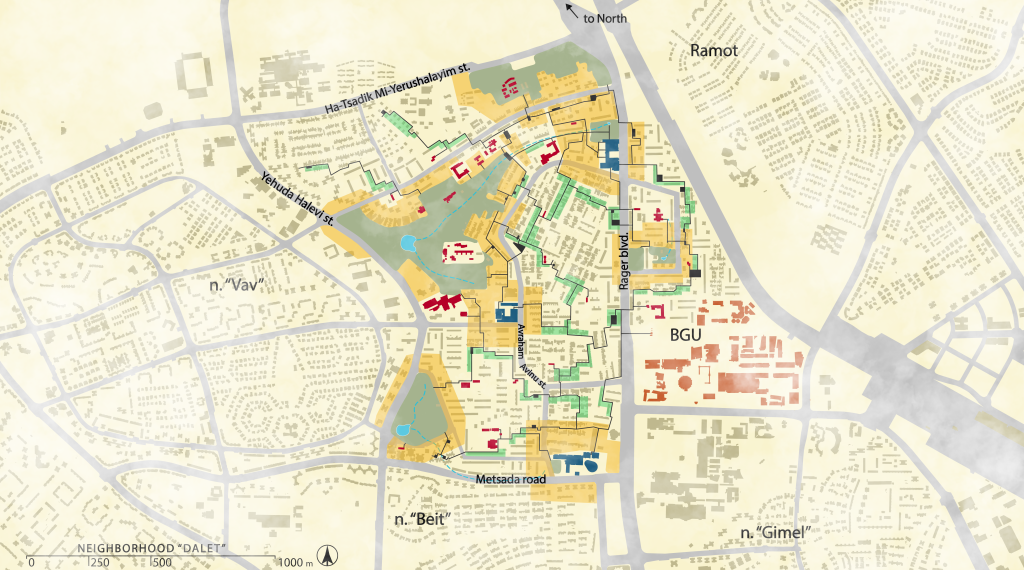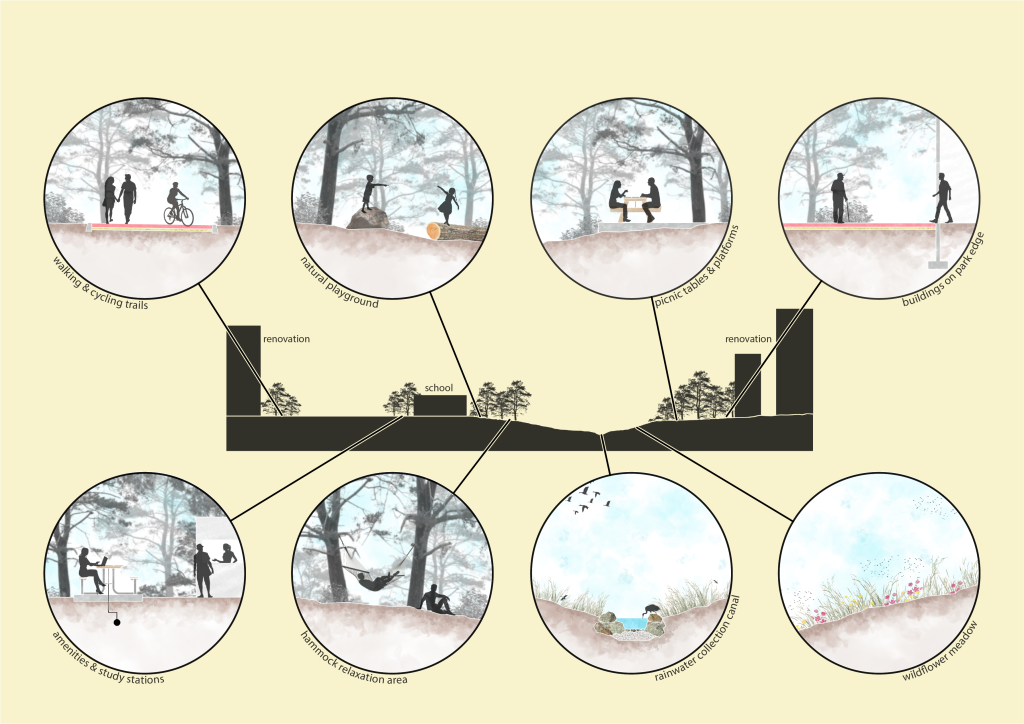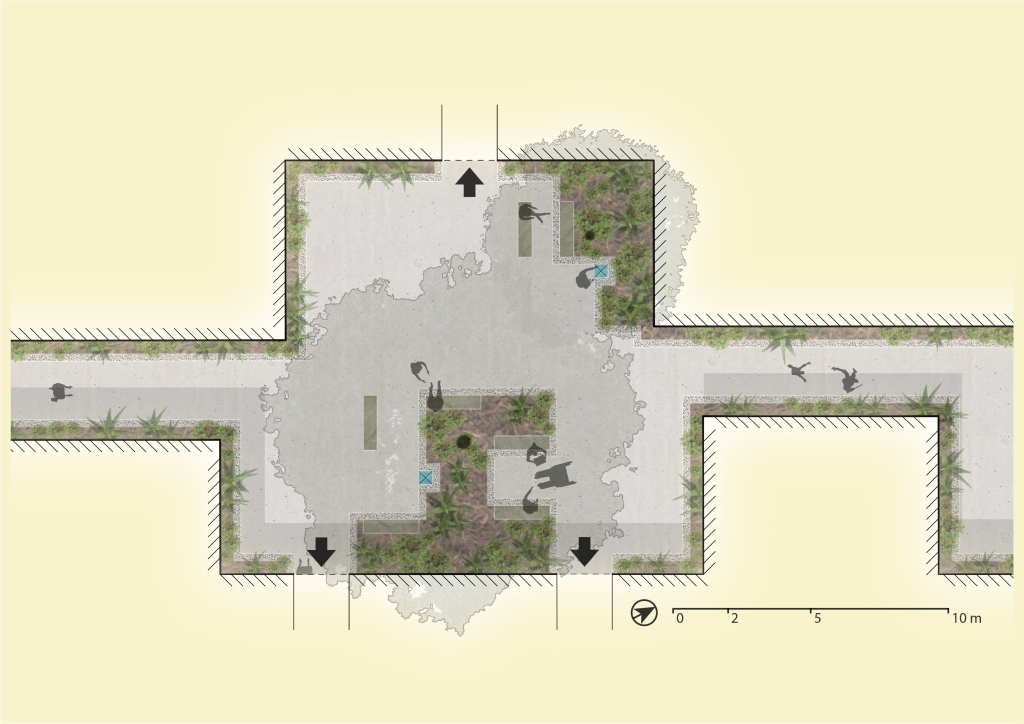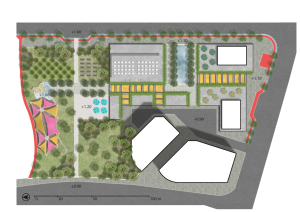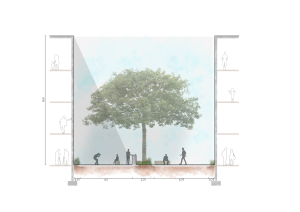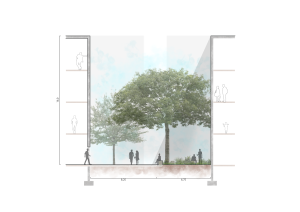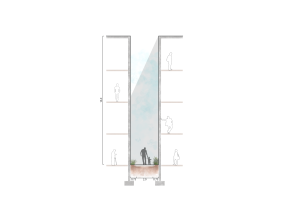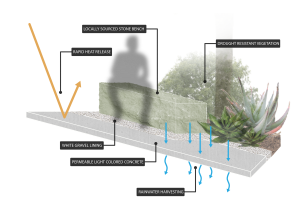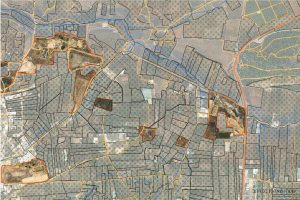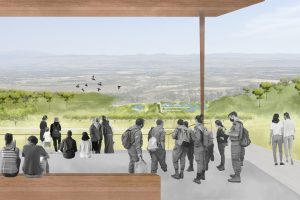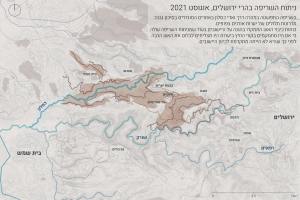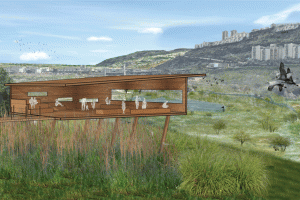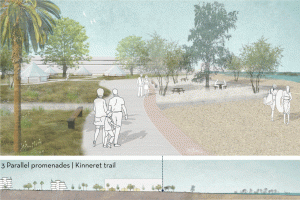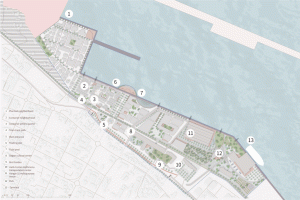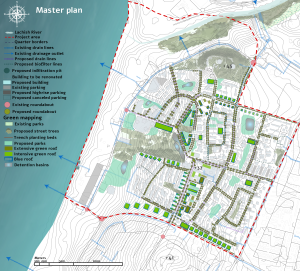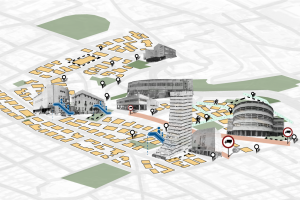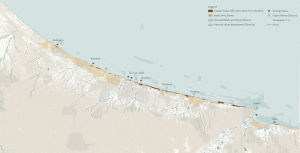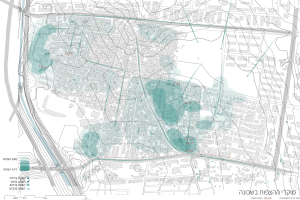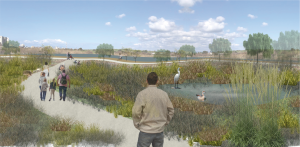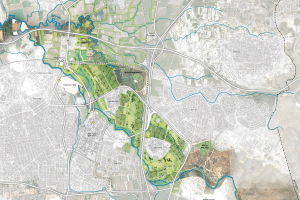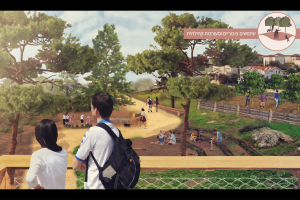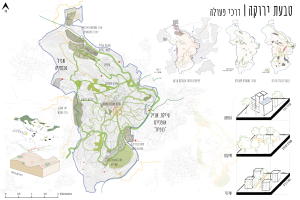Beat the Heat: Designing a framework for climate-resilient Beersheba
Adaptation to excessive urban heat is especially relevant for arid cities, where local
climate further aggravates heatwave intensity and increases their length in comparison to more temperate
environments. Beersheba, Israel’s largest arid metropolitan area, exhibits a 1950s globally dominant design paradigm that lacks any consideration of local climate characteristics.
Focusing on the case study in the Dalet neighborhood, a low-income area that serves as
the main city entrance and is home to several distinct demographics, this project offers a
new urban system that is based upon existing underutilized open space and architecture,
simultaneously considering future densification efforts. By making use of shading
patterns within the urban fabric and enhancing them, this system suggests a different
set of connections between major neighborhood locales, aiming to better everyday life
for the area’s inhabitants while securing the continuous functionality of community and
personal affairs during consecutive days of unbearable heat conditions.



